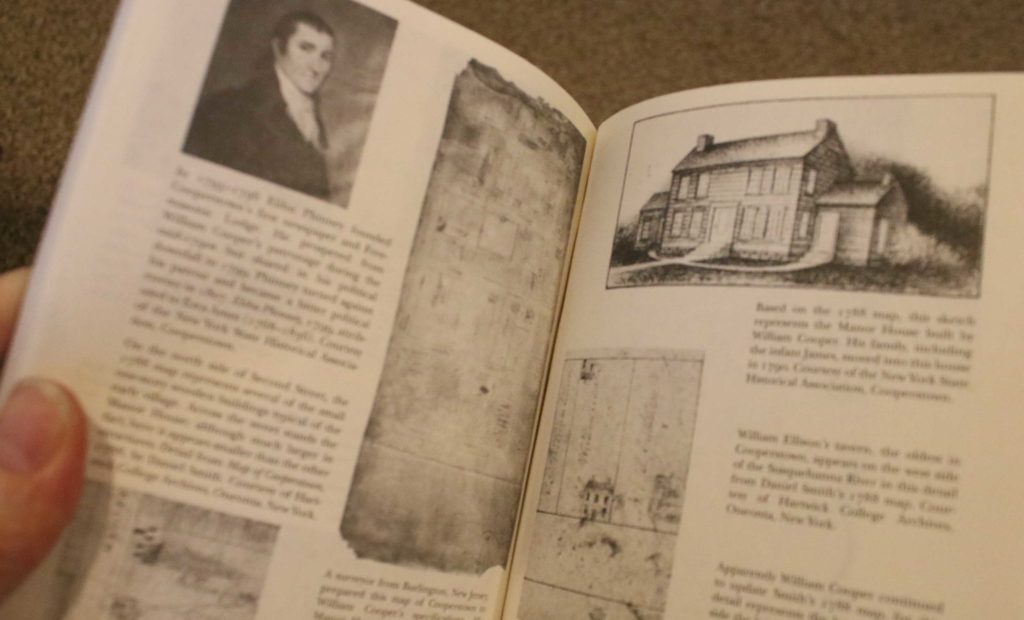Editorial
First Cooperstown Village
Election Was A Wild One

Manor, where Victor Salvatore’s James Fenimore Cooper statue is today, and, upper left, Elihu Phinney, Otsego
Herald publisher, a friend of Cooper’s who became a bitter political foe.
Editor’s Note: The uncertainly surrounding this year’s village elections locally and throughout New York State, now scheduled six months late on Sept. 15, brought to mind the tumult surrounding Cooperstown’s first village elections, recounted in Alan Taylor’s “William Cooper’s Town,” which won a 1996 Pulitzer Prize.
The (state) Legislature (in 1807) was considering two rival petitions to incorporate the
village at the foot of Lake Otsego. Incorporation would provide Cooperstown with a government
distinct from Otsego Township.
Ostensibly the rival petitions disputed the official name for the incorporated village (formation of an aqueduct company was also at issue): in one, (Cooperstown’s founder, Judge William) Cooper and the village Federalists sought to retain the name Cooperstown, while the other championed by (Otsego Herald publisher) Elihu Phinney and his new Republican friends, favored “Otsego Village” in order to dishonor the judge.
…The judge spent much of March in Albany haunting the Assembly lobby to press for passage of his bill. Instead, on April 3, the day after Phinney openly endorsed (gubernatorial candidate Daniel) Tompkins in the Otsego Herald, the state Legislature passed a bill incorporating Otsego Village and empowering Phinney and four associates to establish their aqueduct company.
Wounded by the theft of his village, William Cooper plunged into the campaign of 1807 with a vengeance. It became his personal mission to punish Phinney and the (ascendant Democratic Republicans) by helping to defeat their candidate for governor.
Flushed with victory, Phinney and his associates aggressively moved to implement the new government for Otsego Village. The May 14 issue of the Otsego Herald announced Tompkins’ sweeping victory and
summoned the villagers to meet at the courthouse on Tuesday, May 19, to elect five trustees.
But Phinney and Metcalf underestimated the resiliency and the anger of the Federalists, who were still a solid majority in the village, if no longer in the county at large.
On the 19th, the Federalist majority packed the courthouse and elected five trustees favored by William Cooper. Four days later the village Federalists reconvened at Maj. Joseph Griffin’s Red Lion Tavern.
They instructed the new trustees not to act until the legislature amended the incorporation and restored the name Cooperstown.
…Enraged by Phinney’s betrayal, Cooper urged his neighbors to cancel their subscriptions to the Otsego Herald, and he launched an effort to bring another, solidly Federalist newspaper into the village. In late 1808, the Cooperstown Federalists established their own newspaper, misnamed The Impartial Observer, (renamed The Freeman’s Journal in 1817.)
…The Federalists briefly obtained a majority in the state legislatire and, in June 1812, pushed through a bill reincorporating the village as Cooperstown.”

